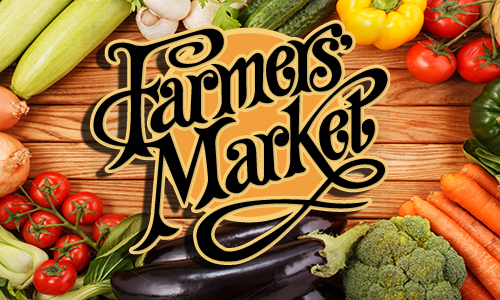University of Missouri Extension food safety specialist Londa Nwadike says that, right now, science is on the side of produce growers. “There is currently no evidence that the novel coronavirus, which causes COVID-19, has been transmitted through food or food packaging,” said Nwadike, who has dual extension appointments with MU and Kansas State University.
That’s good news for those hoping to sell their goods at local farmer’s markets, many of which are just days away from opening for the season. “And it’s good news for people who eat,” she said.
Farmers markets supply food and services that are considered essential functions, so they are exempt from Missouri Gov. Mike Parson’s statewide stay-home order.
Even so, growers need to find new ways to sell foods at farmers’ markets while maintaining social distancing and other safety measures, Nwadike said. “A lot of what we’re talking about at farmers markets is what we should do anyway, but there are additional things we are suggesting when we are talking about preventing the spread of COVID-19,” said Nwadike, who along with MU Extension horticulture specialists Debi Kelly and Patrick Byers recently hosted three online sessions to provide safety tips and answer questions from growers in Kansas and Missouri.
Suggested safety steps for farmers markets and produce growers selling food include:
- Place vendor tables farther apart to allow more space for social distancing.
- Do not allow customers to touch unpackaged food before buying. “What we recommend is that you either package your food in a bag on a table in front of the vendor or the vendor keeps their produce behind them and bags it for the customer,” Nwadike said.
- Provide hand-washing and hand-sanitizing stations.
- Frequently clean and disinfect high-touch surfaces.
- Wear a face covering while interacting with customers.
The Columbia Farmers Market has continued to operate using these modified protocols. Organizers of that market encourage all vendors to use a hand-washing station in their booths and have extra hand-washing stations set up throughout the market for customers to use.
MU Extension recently hosted a webinar that highlighted the Columbia Farmers Market and two other Missouri farmers markets that have adjusted their operations in light of COVID-19. A recording of the webinar is at youtu.be/1ioQp_tinOw.
Nwadike said many of the same recommendations hold for so-called “U-pick” operations in which customers may enter a grower’s farm and pick their own produce, however, U-pick operations are advised to limit the number of people on the property at one time. “Communicate with your customers,” Nwadike said. “Ask them if they have symptoms or if they have been exposed to someone with a known COVID-19 case to please stay home.”
Roadside farm stands should follow similar safety measures. Farmstand operators should avoid taking back noncleanable containers from customers and pre-portion packages before selling to reduce customer contact with produce.
Consumers should always wash produce when they get home, she added. That means washing the whole produce, even if you don’t eat the peel. Wash items such as cantaloupe and potatoes with a produce brush. Nwadike says commercial produce washes have not been shown to be more effective than water from the kitchen faucet. “All the research shows that clean, running water is the best way for consumers to wash produce,” she said.
Safety recommendations change regularly. For the most current information on the spread of COVID-19 and the government’s response, consumers should contact their local or state health department or the U.S. Centers for Disease Control and Prevention.







